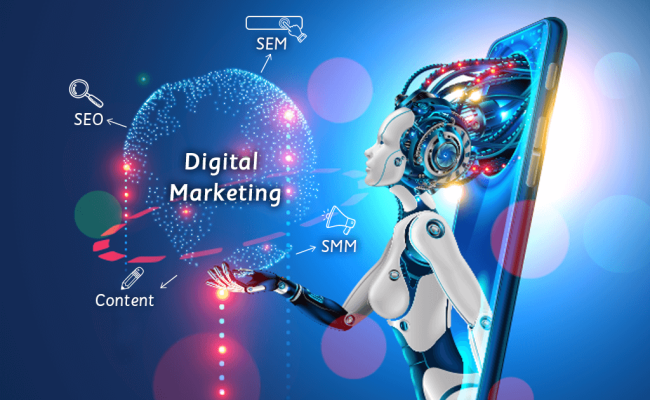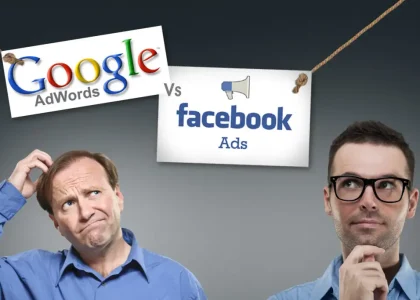Introduction to AI and Automation in Marketing
In the ever-changing landscape of digital marketing, keeping up requires adopting innovative technologies that can streamline efforts and enhance outcomes. Artificial intelligence (AI) and automation are increasingly crucial in reshaping marketing strategies. These technologies offer powerful solutions for improving customer interactions, boosting productivity, and making data-driven decisions. As more businesses recognize their advantages, AI and automation are rapidly becoming indispensable tools in the digital marketing toolkit. By integrating AI, companies can analyze vast datasets to gain insights into consumer behavior and preferences. This allows marketers to create personalized campaigns that resonate with target audiences. Meanwhile, automation handles routine tasks, freeing up human resources for more strategic activities. As AI and automation technologies advance, they will enable marketers to craft more engaging and effective campaigns, ensuring that businesses stay competitive in a rapidly evolving digital environment.
Future Directions in Digital Marketing
As AI and automation technologies advance, they will play a pivotal role in shaping the future of digital marketing. AI’s capability to process and interpret massive datasets will enable marketers to gain deeper insights into consumer behavior, allowing for more precise targeting and personalization. New technologies, such as augmented reality (AR) and virtual reality (VR), are emerging as powerful tools for creating immersive and interactive customer experiences. These advancements will allow brands to engage with their audiences in innovative ways, fostering stronger connections and driving higher engagement rates.
The rise of voice search and smart assistants is also transforming how consumers search for and interact with content online. As these tools become more sophisticated, marketers will need to adapt their strategies to optimize for voice search and ensure their content is easily discoverable through these new channels. Additionally, AI-powered predictive analytics will enable marketers to anticipate trends and consumer needs more accurately, allowing for proactive adjustments to marketing strategies.
Programmatic advertising, driven by AI, is another area poised for growth. By automating the ad buying process and utilizing real-time data, programmatic advertising can deliver highly relevant ads to specific audience segments with minimal human intervention. This not only improves the efficiency of ad spend but also enhances the overall effectiveness of marketing campaigns.
Finally, as privacy regulations become more stringent, AI will be essential in ensuring compliance while still delivering personalized experiences. AI can help manage and analyze data in a way that respects user privacy, allowing marketers to build trust with their audiences. The integration of AI and automation into digital marketing strategies will enable businesses to stay agile and responsive in an ever-evolving landscape.
Improving Customer Experience
AI’s ability to deliver personalized experiences has transformed how businesses interact with their customers. By leveraging AI, marketers can analyze user data to create customized content and recommendations that cater to individual tastes. This level of personalization not only enhances customer satisfaction but also fosters long-term loyalty. Automated customer support systems, such as chatbots, provide instant responses to inquiries, ensuring customers receive timely assistance. These AI-powered systems can handle a wide range of tasks, from answering common questions to guiding users through complex processes, thereby improving the overall customer journey. Additionally, AI tools can monitor customer interactions and feedback across multiple channels, enabling businesses to promptly address concerns and adapt their strategies to meet evolving needs. As a result, the integration of AI and automation leads to a more responsive and engaging customer experience.
Data Analysis and Insights
AI’s capacity to analyze large volumes of data with speed and precision is transforming how marketers approach data analysis. Unlike traditional methods that might rely on manual data processing and interpretation, AI systems can sift through complex datasets to identify trends, patterns, and correlations that are often overlooked by human analysts. This deep dive into data allows marketers to gain a more nuanced understanding of consumer behavior, which in turn informs more accurate targeting and personalization strategies.
AI-powered analytics tools can segment audiences based on various attributes such as demographics, purchasing history, and online behavior. By understanding these segments in greater detail, marketers can tailor their messaging and offers to match the specific needs and preferences of different consumer groups. This targeted approach not only enhances the relevance of marketing efforts but also improves conversion rates.
Furthermore, AI can perform predictive analytics, which involves using historical data to forecast future trends. This capability is invaluable for anticipating consumer needs and adjusting marketing strategies proactively. For example, predictive models can help identify which products are likely to become popular in the coming months, enabling businesses to allocate resources and plan campaigns more effectively.
Another advantage of AI in data analysis is its ability to provide real-time insights. Traditional data analysis often involves a delay between data collection and action, but AI can process and interpret data as it is generated. This real-time analysis allows marketers to make immediate adjustments to their campaigns, optimizing performance on the fly and responding swiftly to changing market conditions.
AI tools also enhance sentiment analysis by examining social media posts, reviews, and other user-generated content to gauge public opinion about a brand or product. This understanding can help marketers address negative perceptions and reinforce positive sentiments, ultimately shaping public perception in a favorable direction.
Incorporating AI into data analysis processes allows marketers to harness the full potential of their data, driving more informed and effective decision-making.
Boosting Efficiency and Productivity
AI and automation are transforming how digital marketing teams operate by streamlining tasks and enhancing overall productivity. Automating routine activities like email marketing, social media posting, and data entry allows marketers to redirect their focus toward more strategic and creative efforts. This reallocation not only conserves time but also diminishes the chances of human error, resulting in more precise execution of marketing initiatives. Workflow automation tools help in managing project timelines, tracking progress, and ensuring that all team members are aligned with campaign goals. This leads to a more organized and efficient work environment.
Moreover, AI can aid in project management by providing tools that track task completion and measure productivity. Automated reporting features can generate insights into campaign performance, offering real-time data that helps marketing teams make informed decisions swiftly. These insights enable teams to optimize their strategies and enhance campaign outcomes without the need for extensive manual analysis.
Another key benefit of automation is its role in enhancing collaboration among team members. Tools that automate communication and task assignments ensure that everyone is kept in the loop, reducing misunderstandings and delays. This collaborative aspect is particularly crucial in larger teams where effective coordination can significantly impact project success.
AI-driven tools can also assist in content creation by suggesting topics, headlines, and even drafting initial copies based on trending keywords and consumer preferences. This support allows content creators to produce high-quality material more quickly, meeting the ever-increasing demand for fresh and relevant content.
Additionally, automation platforms can integrate with various marketing tools, creating a seamless ecosystem where data flows effortlessly between systems. This integration ensures that all marketing efforts are synchronized, providing a holistic view of campaign performance and enabling more cohesive strategy development.
As a result, digital marketing teams can operate more efficiently, delivering high-quality results with less effort and resources.
Targeted Advertising and Campaigns
AI is transforming the advertising landscape by making campaigns more targeted and effective. Through sophisticated algorithms, AI can analyze vast amounts of consumer data to uncover patterns and preferences, allowing marketers to identify distinct audience segments. This level of insight enables the creation of highly customized advertising messages that resonate with specific groups, significantly improving the chances of engagement and conversion.
Automation tools complement these efforts by optimizing campaigns in real time. These tools continuously monitor various performance metrics, such as click-through rates, conversion rates, and user engagement, and make necessary adjustments to enhance effectiveness. For instance, if an ad is underperforming, the system can automatically tweak elements like the target audience, ad placement, or bidding strategy to improve results. This dynamic optimization ensures that marketing resources are used efficiently, maximizing the impact of each campaign.
Another advantage of AI in advertising is its ability to handle large-scale campaigns effortlessly. Whether it’s managing thousands of ad variations or distributing ads across multiple platforms, AI systems can perform these tasks with unparalleled efficiency. This capability is particularly beneficial for businesses looking to scale their marketing efforts without a proportional increase in manpower.
AI-driven advertising also benefits from advanced predictive analytics. By analyzing historical data and current trends, AI can forecast future consumer behavior and market conditions. This foresight allows marketers to anticipate shifts in consumer preferences and adjust their strategies proactively. For example, if predictive models suggest a rising interest in a particular product category, marketers can allocate more budget and resources to promote related products, staying ahead of the competition.
Additionally, AI tools can enhance retargeting efforts by identifying users who have shown interest but have not yet converted. By delivering tailored ads to these potential customers, businesses can increase the likelihood of conversion and improve overall campaign performance.
Ultimately, integrating AI and automation into advertising strategies offers a powerful way to connect with audiences more effectively, ensuring that marketing efforts are both efficient and impactful.
Cost-Effectiveness and ROI
Implementing AI and automation in digital marketing offers numerous financial benefits. By automating labor-intensive tasks, businesses can significantly cut down on operational costs and reallocate resources toward more strategic initiatives. AI tools enhance budget optimization by pinpointing the most profitable channels and tactics, ensuring that marketing dollars are spent wisely. These tools can continuously analyze performance data and make real-time adjustments, which means marketers no longer need to rely on guesswork or manual interventions to tweak their strategies. Predictive analytics play a crucial role here, allowing marketers to forecast trends and customer behaviors accurately. This foresight enables more efficient budget allocation, focusing on strategies and channels that promise the highest returns. The cost savings don’t just stop at task automation; AI can also streamline processes such as ad targeting and content distribution, minimizing waste and maximizing impact. This efficiency is particularly valuable for small businesses or startups that may have limited marketing budgets but still aim to compete effectively. The reduced need for human intervention also translates to fewer errors and higher precision, ensuring that marketing campaigns run smoothly and effectively. Additionally, AI-powered tools often come with built-in analytics features, providing detailed insights into campaign performance. This data can guide future marketing efforts, making it easier to fine-tune strategies and improve ROI over time. The ability to scale marketing efforts without a proportional increase in costs further amplifies the financial advantages, allowing businesses to grow sustainably.
Future Trends and Innovations
AI and automation are set to drive the next wave of innovation in digital marketing. One emerging trend is the integration of AI with augmented reality (AR) and virtual reality (VR) to create immersive customer experiences. By leveraging these technologies, marketers can engage audiences in novel ways, offering interactive and personalized experiences that captivate users.
Voice search is another area poised for significant growth. As smart assistants become more sophisticated, optimizing content for voice queries will be crucial. Marketers will need to focus on natural language processing and conversational interfaces to ensure their content is easily discoverable via voice search.
Enhanced machine learning algorithms will provide even deeper insights into consumer behavior. These advanced models can predict trends with greater accuracy, allowing marketers to fine-tune their strategies proactively. As a result, businesses can stay ahead of market shifts and meet consumer needs more effectively.
Additionally, ethical AI and data privacy will become more important. As privacy regulations tighten, AI will play a key role in ensuring compliance while maintaining personalized marketing efforts. This focus on ethical AI will help build consumer trust and foster long-term loyalty.
Programmatic advertising will continue to evolve, with AI automating more aspects of the ad-buying process. Real-time data analysis will enable hyper-targeted advertising, improving both efficiency and effectiveness. This evolution will allow marketers to deliver highly relevant ads with minimal manual intervention.
Finally, the integration of AI across various marketing tools will create a more cohesive and streamlined ecosystem. By automating data flows between platforms, businesses can gain a comprehensive view of their marketing efforts, enabling more informed decision-making and strategy development.
Embracing these future trends will be essential for marketers looking to stay competitive and innovative in the rapidly evolving digital landscape.





